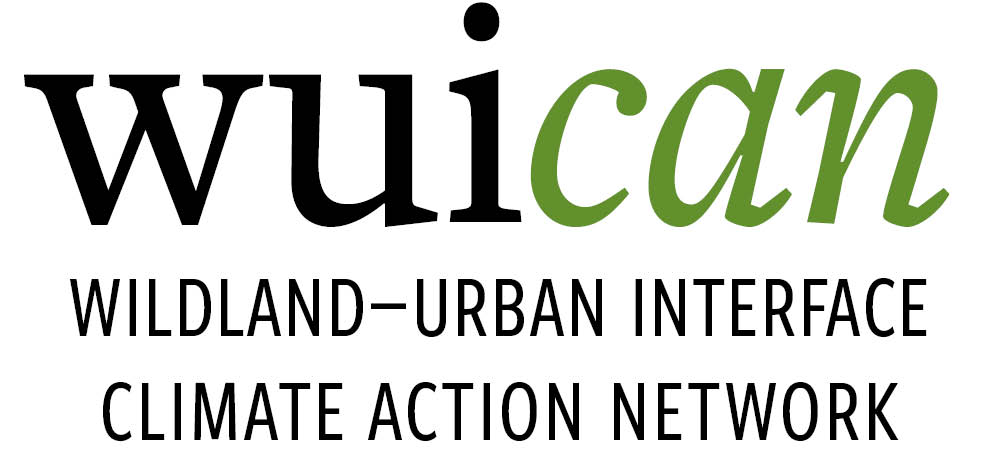
Sara Tiersma
March 10, 2025
In a candlelit room at Temple Beth El of South Orange County on February 12, 2025, faith leaders, environmentalists and community members reflected on fire— not just as a physical force, but as a symbol of renewal and connection in both faith and science. Leaders from different faith communities were invited to light a candle and share the significance of fire in their traditions.
Reverend Jim Lee, Associate Priest of the Church of the Messiah in Santa Ana and Professor of Asian American Studies at UC Irvine, spoke about the Paschal candle that Episcopalians light in a darkened sanctuary on the last day of the Easter Holy Week. The candle represents the light of hope found in Christ’s tomb, a place of death and mourning.
Representatives from other faith traditions lit candles as well, including Ketu Katrak, a Zoroastrian and UC Irvine Professor Emerita of Drama; Atilla Kahveci from the Turkish Muslim Pacifica Institute; and Ryan Cullumber, Associate Pastor at Harbor Christian Church. In the circle of candlelight, Reverend Lee read a prayer for peace and healing.
The program was led by Rabbi-Cantor Marcia Tilchin, founder of the Jewish Collaborative of Orange County. Rabbi Marcia shared the essential role that fire plays in the Jewish community, such as during Hanukkah with the lighting of the Menorah, and on Friday evenings before Sabbath, where families gather to study and feast by candlelight. Jews also light a memorial candle that burns for 24 hours to commemorate a loved one. Aftewards, everyone lit their own candles and considered what fire meant to them.



Images from Fire: An Interfaith Exchange, from left to right: Rabbi Marcia Tilchin leads attendees on a synagogue tour of Temple Beth El of South Orange County before the program; local musician Jason Feddy performs a song during the event; candles burn as part of the Interfaith Candle Lighting service. Photo credit: Kelly Brown, UC Irvine, and Sara Černe, UCHRI
Karagan Smith, a PhD student in the Cleland Lab at UC San Diego, shared her research on native stewardship and plant recovery after wildfire. While some native shrubs thrive after severe burns, moderate burns allow invasive species like wild mustard to take over the California wildlands. Learning from these findings and using methods from Indigenous stewardship, a group at UCSD was able to restore a section of land more successfully than previous attempts.
Turning from the necessity of fires for the California ecosystem to fire prevention in urban wildland areas, Madison Killebrew, the Fire Prevention and Management Program Manager at Irvine Ranch Conservancy, spoke about her work protecting, restoring and enhancing the ecological health of preserved land in Orange County. California’s fire frequency has increased dramatically in the past several decades and the wind-driven fires common to the area can be difficult to contain. Madison works on building wildland interfaces, or space to separate neighborhoods from the wildlands and protect them from fire. She also leads the OC Fire Watch Program, a group of volunteers who go out during red flag events and watch for dangers.
Madison described a recent fire in Laguna Niguel where the wind had pushed the embers over the wildland interface and several homes were burned. What makes the difference? Home hardening. Madison explained that while new builds are required to have necessary requirements for fire protection, many older homes may still be at risk.
After opening the program with a rendition of James Taylor’s Fire and Rain, local musician Jason Feddy returned to sing Leonard Cohen’s Who by Fire? as Rabbi Marcia lit a Jewish memorial candle for the people, homes and landscapes impacted in the recent Southern California wildfires. Rabbi Marcia and Jason joined their voices together to end the evening, singing in harmony a song of healing.
Sara Tiersma is a senior at the University of California, Irvine, where she is majoring in Literary Journalism. She is a 2024-2025 WUICAN Climate Communications Fellow with the UC Humanities Research Institute (UCHRI).
Fire: An Interfaith Exchange was hosted by the Interfaith Climate Action Working Group of the Wildland-Urban Interface Climate Action Network (WUICAN, pronounced “we can”). Housed at UC Irvine, WUICAN is a consortium of community-based organizations, California Native American Tribes, land managers and universities in Southern California working together to address the climate crisis. This Fire event followed previous Elemental Climate Conversations on Water and Air. A final event on Earth will take place June 5 at the Pacifica Institute in Lake Forest, followed by a culminating Climate Action Festival on October 11 at Harbor Christian Church featuring the work of WUICAN and interfaith partners.
WUICAN acknowledges our presence on the ancestral and unceded territory of the Acjachemen and Tongva Peoples, who still hold strong cultural, spiritual and physical ties to this region.
Contact:
Research Justice Shop
researchjustice@uci.edu
Join the WUICAN mailing list


Follow us